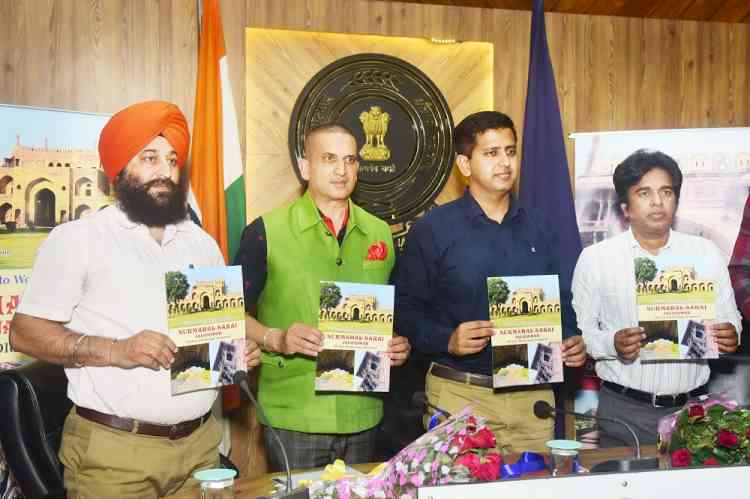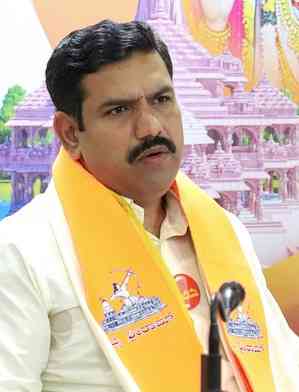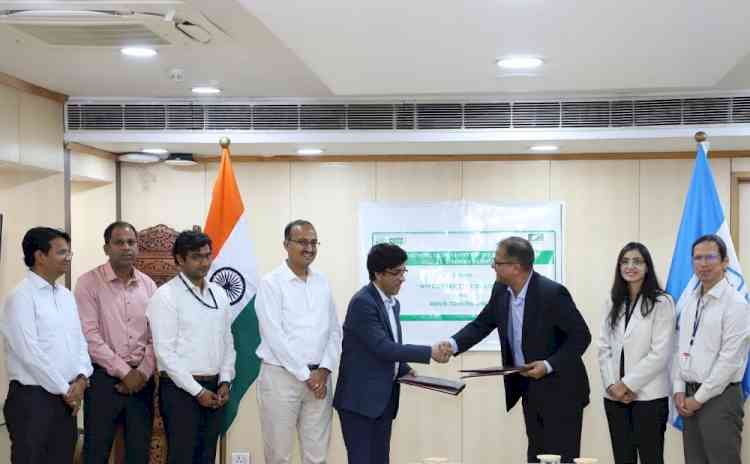ORGAN donation campaign: Nine people can get new life from one brain dead person
Author(s): City Air NewsOn Organ Donation Day, an event is being held at DMCH, Ludhiana on Saturday. City Air News photo: Mandeep Kumar Verma/Ludhiana. Ludhiana, August 3, 2013: India is a population of billions and lacs of people are...


On Organ Donation Day, an event is being held at DMCH, Ludhiana on Saturday.
City Air News photo: Mandeep Kumar Verma/Ludhiana.
Ludhiana, August 3, 2013: India is a population of billions and lacs of people are dying with various organ failures like liver failure, kidney failure, heart failure etc. On the other hand lacs of people with functional organs are dying because of head injuries, and other medical illness and their organs can be used to save some precious lives. India is not able to make use of these lacs of organs which are going waste because of hurdle at three important levels-at the government level- needs special funds, at the hospital level – failure to identify brain dead patients and at the public level- lack of awareness and motivation.
Principal Dr Daljit Singh said that they need to make public aware about brain death and motivate them for organ donation. All the religions endorse organ donation which is noblest deed. But people in India are still reluctant to even talk about donating organ, be it due to lack of social awareness, underlying fear, or social taboo. The purpose of this ceremony is that every member of society should encourage debate on these social questions and thereby help to improve organ donation and transplantation, said Dr Baldev Singh Aulakh, Professor of Urology and Kidney Transplant Surgeon, Department of Urology, Dayanand Medical College and Hospital, Ludhiana, who has been performing kidney transplants for more than 20years.
In India every year there is a need of approximately 175000 kidneys, 50,000 hearts and 50,000 livers for transplantation. As against the need, around only 5000 kidney transplants in 180 centres, 400 livers in 25 centres and 10-15 hearts in very few centres are done annually. 95 % kidneys and livers are from living donors. Whereas in western world 70% transplanted organs are from brain dead people. In America every two hour one person is dying, in UK one person dies every 8 hours however in India every 4-5 min one person is dying of kidney failure.
“We need to realise that in the event of brain death, the other organs of the patient would subsequently give up. A clear understanding of brain death would help in the endeavor to spread awareness about organ donation. Various NGOs like GLODAS (Gift of Life-Organ Donation Awareness Society) have been active for this noble cause though its various public awareness activities. GLODAS has been known to organise various camps, seminars, walks, school programs to increase awareness amongst the public. GLODAS has promoted more than 15,000 donor cards which are signed by person interested in voluntarily donating their organs after their life. Such attempts help us in a great way in identifying voluntary organ donors. One way to do this is by having driving licenses to double up as donor cards, a practice that’s followed in various Western countries, suggested Dr Aulakh president GLODAS. The Central Government is currently working on a new draft of the Human Organ Rules 2012 in which the health ministry has suggested that all people applying for driving licenses be asked whether they’re willing to donate their organs upon death or not. In Australia there has been 33% rise in organ donation in six months after the government started to promote organ donation programs, informed Manjula secretary GLODAS.
Ninteen years after India passed the Transplantation of Human Organs Act, allowing organ retrieval from the brain-dead patients, kidney donations by live donors remain very much in vogue and, according to a recent study, and the country sees more such transplants than any other country in the world barring the US.
In 1998, India had 1% of the world's road vehicles and 6% of the world's road accidents. These accidents have increased to 10% in 2006. The total number of road accidents is approximately 90,000 per annum.. By conservative estimates about 245 Indians die in road accidents every day and 40% of those people are left ‘brain dead’ with huge potential of organs. Other causes of brain death such as sub-arachnoids' haemorrhage and brain tumours would potentially add more numbers. Even if 5% to 10% of all these deceased patients became organ donors, it would mean that there would be no requirement for a living person to donate an organ. Promoting the deceased donation program would not only help kidney transplants but also liver, heart, pancreas, and lung transplants to thrive in the country.
India is currently having a deceased donation rate of 0.05 to 0.08 per million populations. We need to find a solution on how we can utilise the potentially large pool of trauma-related brain deaths for organ donation.
Of the various patients who were deprived of the donated organ was the India's Union Minister Vilasrao Deshmukh who died last year while waiting for a liver transplant.
Modification of the existing laws which enable hospitals to declare patients as brain dead by proper identification and by issuing brain dead certificates, including a formal request for organ donation to the brain dead patient families will help to surpass the everlasting shortage of organs. The government of India provides free second class railway passes and free life insurance for the immediate relative of the donor as a token of appreciation. All the fund and donations regarding organ transplant in India are exempted from tax under section 80 G(5)(vi) of Income tax act 1961.
Apart from sensitising people and the general public about the need to donate, what is also equally important is communicating with doctors and medical practitioners. Many doctors do not address the option of donation to relatives of the deceased.
One donor can save the life of several people, restore the sight of two others and improve the quality of life of many more. The more people who pledge to donate their organs and tissue after their death, the more people stand to benefit. Transplants are one of the most miraculous achievements of modern medicine. But they depend entirely on the generosity of donors and their families who are willing to make this life-saving or life-enhancing gift to others.
To decide whether or not you wish to become a donor is something very personal and it is important that everyone makes their own decision, said Dr Aulakh.

 cityairnews
cityairnews 

















